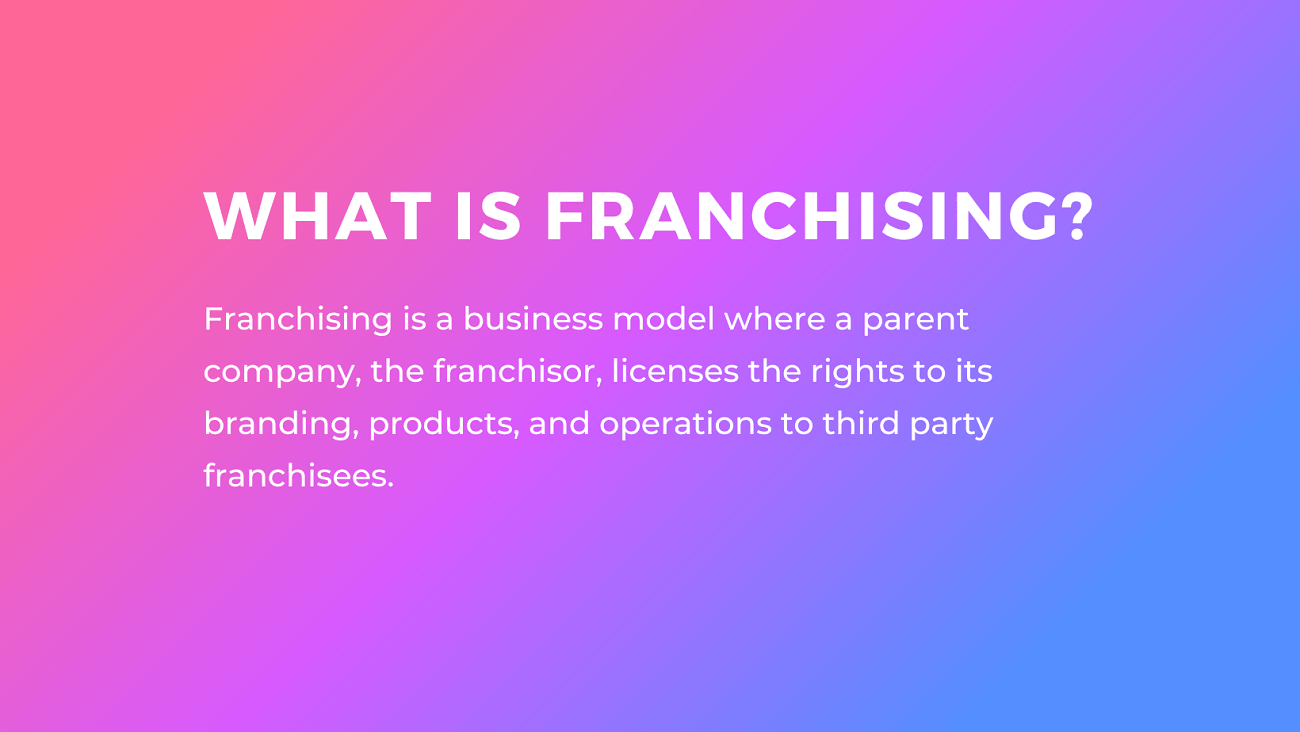Physical Address
304 North Cardinal St.
Dorchester Center, MA 02124
Physical Address
304 North Cardinal St.
Dorchester Center, MA 02124

Franchising allows entrepreneurs to expand their business by licensing their operations model, brand, and products to third party franchisees. This growth strategy offers an alternative to opening company-owned locations that requires less capital. This article will define franchising, outline the process, and detail the many advantages of franchising your business.
Table of Contents
Franchising is a business model where a parent company, the franchisor, licenses the rights to its branding, products, and operations to third party franchisees. Franchisees pay an initial franchise fee and ongoing royalties to open and operate a location using the franchisor’s system and trademarks.
McDonald’s, Anytime Fitness, and Ace Hardware are all examples of major franchised brands. But franchising is used by businesses of all sizes and industries to expand nationwide or worldwide.
For the franchisor, the process involves creating a proven business model then selling licenses to franchisees to operate that model in different locations under their branding.
Franchisees purchase a franchise territory and branding rights to open a local branch. They follow the franchisor’s system, receive training and support, and market to their geographic area.
The franchisor earns money through the initial franchise fee to join the system, as well as ongoing royalty payments based on location sales. It’s a scalable business model that allows for rapid expansion and an owner to open multiple units through franchising.
There are many advantages that make franchising an appealing growth strategy for certain businesses:
However, there are also a few potential disadvantages to be aware of:
Franchising leverages motivated franchisee owners to expand a brand rapidly without requiring direct capital expenditure by the parent company. It’s an efficient way to scale while maintaining brand control and quality.
For entrepreneurs considering franchising their successful business model, the franchise route offers faster growth and less financial risk than establishing company-owned locations. Franchising allows brands to expand worldwide and achieve economies of scale quickly.